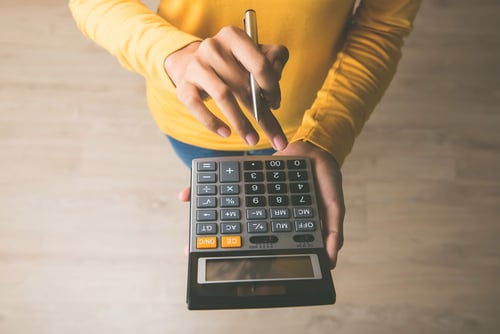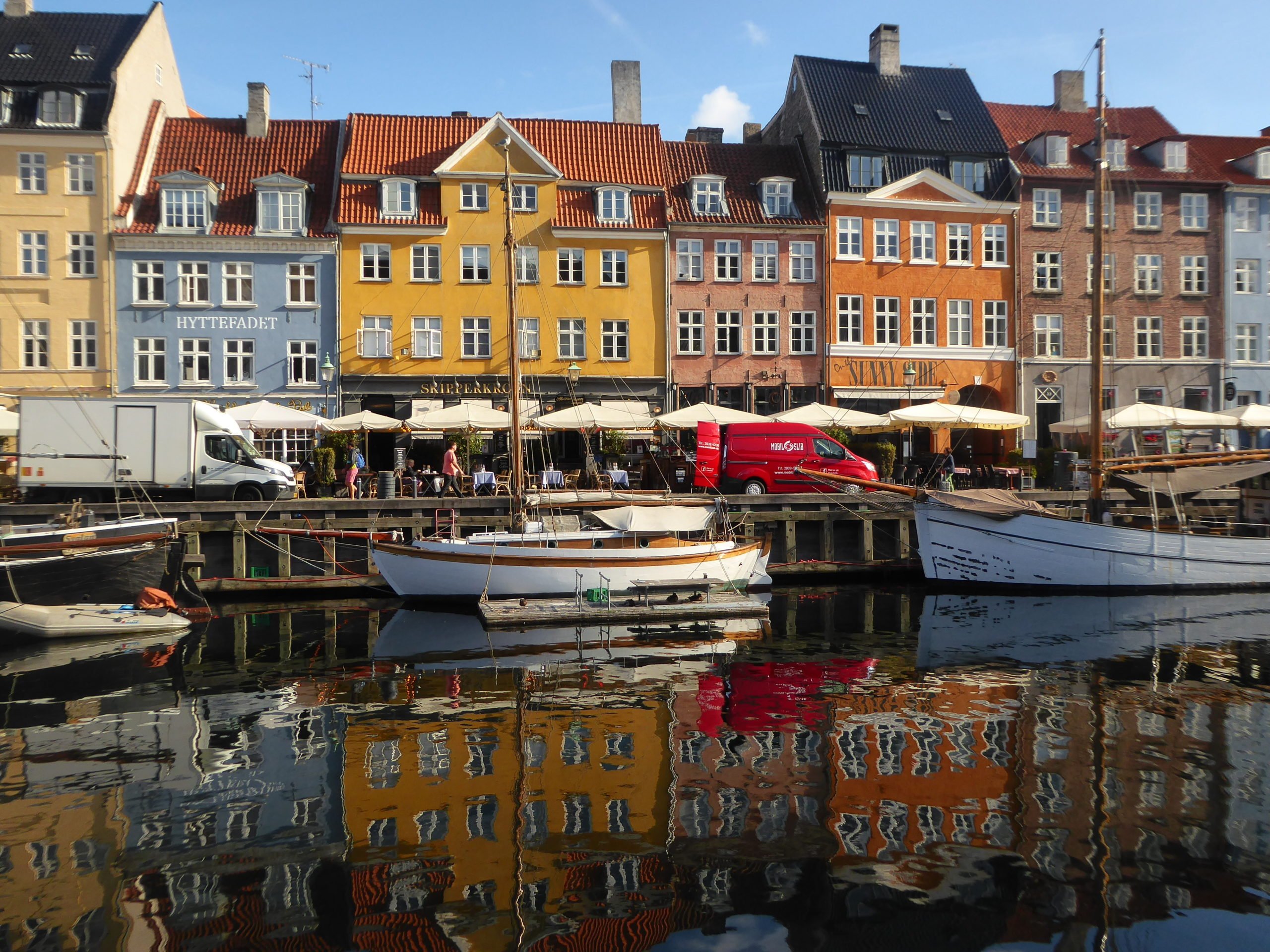Moving to a new country is an adventure, but the financial realities can be a shock. Denmark, a nation consistently ranked as one of the happiest in the world, offers an exceptional quality of life, a strong welfare state, and a culture that values work-life balance. Yet, this high standard of living comes with a reputation for being one of Europe’s most expensive countries. For expats planning to relocate in 2025, understanding these costs is the first step toward a seamless transition.
This comprehensive blog will demystify the cost of living in Denmark. We will break down all major monthly expenses, from housing and groceries to transportation and leisure. We’ll also compare these costs to average Danish salaries, giving you a clear picture of what to expect. By the end, you’ll have a practical framework and actionable tips to budget effectively, ensuring you can thrive not just survive in your new Danish home.

Why Understanding the Cost of Living Matters for Expats
When planning a move to Denmark, a deep understanding of your potential expenses is non-negotiable. It's not just about knowing how much things cost; it’s about strategic financial planning. The high cost of living is directly balanced by some of the highest salaries globally, but this balance is only effective if you budget wisely.
Your financial planning will influence major decisions, from choosing your city of residence to determining if your job offer meets the necessary financial requirements. For instance, Denmark’s Pay Limit Scheme for work permits requires a specific salary threshold, making it critical to know if your prospective income aligns with visa rules and your personal budget. To get a realistic sense of what you can earn, we recommend exploring our detailed blog on Danish Salaries in 2025. With a solid budget in place, you can confidently plan your relocation and focus on the excitement of settling into your new life.
Housing Costs in Denmark (2025)
Housing will likely be your single largest monthly expense in Denmark. The rental market is competitive, especially in major cities, but costs can vary dramatically by location and apartment size.

Rent in Denmark's Major Cities
As of 2025, the average monthly rent for a one-bedroom apartment in a city center is as follows (in DKK):
- Copenhagen: DKK 10,000 - DKK 15,000. Rent in the capital is the highest, particularly in popular neighborhoods like Indre By, Østerbro, or Vesterbro.
- Aarhus: DKK 8,000 - DKK 12,000. Denmark's second-largest city offers a vibrant urban experience with slightly more affordable housing than Copenhagen.
- Odense: DKK 7,000 - DKK 9,000. As a major university city, Odense provides a great balance of culture and cost, making it attractive for expats and students.
- Aalborg: DKK 6,000 - DKK 8,000. Known for its industrial strength and northern charm, Aalborg has the most affordable rents among the major cities.
For those with families or a need for more space, a three-bedroom apartment in a city center can range from DKK 15,000 to DKK 25,000 or more, depending on the city. Many expats choose to live in suburban areas to save on rent and enjoy more living space.
If you are a professional in a specific field, such as IT, you can explore job opportunities in these cities by visiting our IT jobs in Denmark page.

Utilities and Other Housing Expenses
Beyond rent, you need to budget for utilities. For an 85m² apartment, a realistic monthly budget for a single person is:
- Electricity, heating, water, and garbage: DKK 1,000 - DKK 1,500
- Internet (60+ Mbps): DKK 250 - DKK 300
- Mobile phone plan: DKK 100 - DKK 150
Total Monthly Housing Budget: Expect to spend at least DKK 11,350 to DKK 16,950+ per month for a one-bedroom apartment in Copenhagen, including all associated costs. This figure can be significantly lower in smaller cities.

Transportation Costs
Getting around Denmark is efficient, but it comes at a price. The good news is that you have excellent alternatives to expensive car ownership.
Public Transport and Cycling
Car ownership is prohibitively expensive in Denmark due to high taxes and fuel prices, which are among the highest in Europe. Most urban residents rely on a world-class public transport system and the country's renowned cycling culture.
- Monthly Public Transport Pass (Copenhagen): A monthly pass for the central zones (København Hovedbanegård) costs approximately DKK 800 - DKK 1,200, depending on the zones you need.
- Cycling: Bicycles are a national icon and the most cost-effective way to get around. A second-hand bike can be purchased for DKK 1,000-2,000, and city bike rentals are also widely available.
For those who must own a car, be prepared for high costs:
- Fuel (gasoline): Around DKK 16-18 per liter.
- Insurance and road tax: Can easily amount to DKK 10,000-20,000 annually.

Food and Groceries
Food costs in Denmark are higher than in most of Europe, but smart shopping can make a significant difference.
Groceries
A single person can expect to spend DKK 2,500 - DKK 3,500 per month on groceries. This budget is achievable by shopping at discount supermarkets like Netto, Lidl, and REMA 1000 instead of premium stores like Irma or Meny.
Here’s a snapshot of average prices for some common grocery items:
- Milk (1 liter): DKK 10-12
- Loaf of bread: DKK 20-25
- Eggs (12): DKK 30-35
- Chicken fillets (1 kg): DKK 70-80
- Apples (1 kg): DKK 15-20
Eating Out
Eating at restaurants is a luxury. An inexpensive meal at a casual restaurant can cost DKK 150-200 per person. A mid-range, three-course meal for two people can easily exceed DKK 800. Cooking at home is not only a great way to save money but also an opportunity to embrace the Danish "hygge" culture with friends.

Healthcare and Insurance
Denmark’s public healthcare system is a cornerstone of its social model.
The Danish Public Healthcare System
Once you are registered as a resident and have a CPR number, you are automatically covered by the public healthcare system. This means most medical services, including visits to a general practitioner (GP), hospital treatments, and specialist referrals, are free of charge. You will be assigned a GP, and all you need is your yellow health insurance card to access care.
The system is funded by a high progressive tax rate. While the service is excellent, there can be waiting times for non-emergency treatments. Expats are encouraged to use official resources like the Danish Patient Safety Authority for guidance.
Private Insurance
Many newcomers opt for private health insurance to supplement the public system, especially while waiting for their CPR number or for quicker access to specialists. This is an added cost and can range from a few hundred to over a thousand DKK per month, depending on the coverage.
For official information on health coverage for newcomers, visit the Workindenmark healthcare page.
Education Costs

For expat families, education is a major consideration. Denmark offers both free public schooling and a range of international schools.
Public Schooling
Public schools (Folkeskolen) are free for all children residing in Denmark. The quality of education is consistently high, and the curriculum is comprehensive. Many public schools offer programs to help non-Danish-speaking children integrate.
International Schools
For those who prefer a non-Danish curriculum (e.g., IB, British, or American), there are excellent international schools available. However, these come with a significant cost. Annual tuition fees can range from DKK 30,000 to over DKK 150,000 per child, depending on the school and grade level. In addition to tuition, there are often one-time enrollment fees and capital fees.
Leisure, Entertainment & Miscellaneous

Denmark’s emphasis on work-life balance means leisure activities are an important part of life.
Monthly Leisure Costs
Your budget for entertainment and social life will vary, but here are some average prices:
- Gym membership: DKK 200 - DKK 400 per month.
- Cinema ticket: DKK 120-150.
- A beer at a pub: DKK 50-70.
- Coffee at a cafe: DKK 35-45.
Many Danes enjoy free activities like cycling, visiting public parks, and cultural events. Museums and art galleries often have free admission days.
Cost of Living vs. Salaries

This is where the high cost of living in Denmark is balanced. High salaries, coupled with a robust social welfare system, mean that the purchasing power of an average Dane is strong.
According to data from our Jobs in Denmark for Non‑EU Applicants: Visa, Salaries & Shortage Roles blog, a professional in Copenhagen can expect an average monthly net salary (after tax) of around DKK 29,000. With a total monthly cost for a single person in Copenhagen ranging from DKK 18,000 - DKK 25,000, a significant portion of this salary is disposable income. This allows for a comfortable lifestyle, savings, and travel.
To get an accurate estimate for your specific profession, use our AI Salary Checker. It provides up-to-date salary data for a wide range of roles, helping you negotiate your job offer confidently.
Monthly Cost Breakdown for a Single Expat in Denmark (2025)
- Housing (one-bedroom apartment in a mid-size city): DKK 8,000
- Utilities (heating, electricity, internet): DKK 1,300
- Groceries: DKK 3,000
- Public Transport: DKK 600
- Leisure & Miscellaneous: DKK 1,500
- Total Monthly Estimate: Approximately DKK 14,400
Tips for Managing Costs in Denmark

Living affordably in Denmark is all about making smart choices. Here are some actionable tips:
- Housing: Look for accommodation outside the city center or consider a shared apartment.
Kollegiums(student housing) are also an option for eligible expats. - Groceries: Stick to discount supermarkets like Netto, Aldi, Lidl, and REMA 1000. Plan your meals and buy local, seasonal produce.
- Transportation: Embrace cycling. It's not just a way to save money, it's a way of life that will help you integrate and stay fit.
- Earning Potential: The best way to manage costs is to increase your income. A well-crafted resume that highlights your skills and experience can land you a higher-paying job. Use our AI Resume Builder to create a professional, Danish-style resume that gets noticed by top employers.

FAQs
While Denmark has a high cost of living, average salaries are also among the highest in the world. This balance often results in significant disposable income for skilled professionals. For a detailed comparison and a list of jobs that offer competitive salaries, refer to our guide on Most In-Demand Jobs in Denmark 2025 & Salaries.
To determine if a job offer is competitive, it's essential to research the average salary for your specific profession and experience level in Denmark. You can get an accurate, up-to-date estimate by using the AI Salary Checker from Dr.Job. This free tool helps you negotiate with confidence and ensures your salary aligns with market rates.
Yes, while groceries are expensive, you can save money by shopping at discount supermarkets like Netto, REMA 1000, and Lidl. Planning your meals and focusing on local, seasonal produce can also help you stick to your budget without compromising on quality.
To justify a higher salary, your resume must clearly highlight your value and skills. A well-structured, professional resume that is tailored to Danish standards is crucial. You can find a comprehensive guide to crafting a professional CV in our article on The Danish Resume (CV) Format for 2025.
To lower housing costs, consider looking for accommodation outside the main city centers. Shared apartments or rooms in a 'kollegium' (student housing) are also a more affordable option for eligible expats. Early and thorough research on the housing market is key.
Conclusion
The cost of living in Denmark is high, but so is the quality of life. The country’s robust economy, high salaries, and strong social safety net mean that for most skilled expats, the financial balance is firmly in their favor. By understanding the key expenses and budgeting wisely, you can enjoy a comfortable life that includes a great work-life balance, access to free public healthcare and education, and a safe, clean environment.
Ready to find a job that makes your move to Denmark a reality? Explore thousands of opportunities in your field on Dr. Job Pro’s extensive job listings and start your journey today.

About the Author
Suleiman Alnsour is a global career strategist and General Manager at Dr. Job Pro, specializing in connecting talent with top international opportunities. He writes actionable, research-backed guides for jobseekers and expats to navigate global job markets.








 2025-10-20
2025-10-20
 2025-08-14
2025-08-14
 2025-08-06
2025-08-06
 2025-08-05
2025-08-05
 2025-08-01
2025-08-01